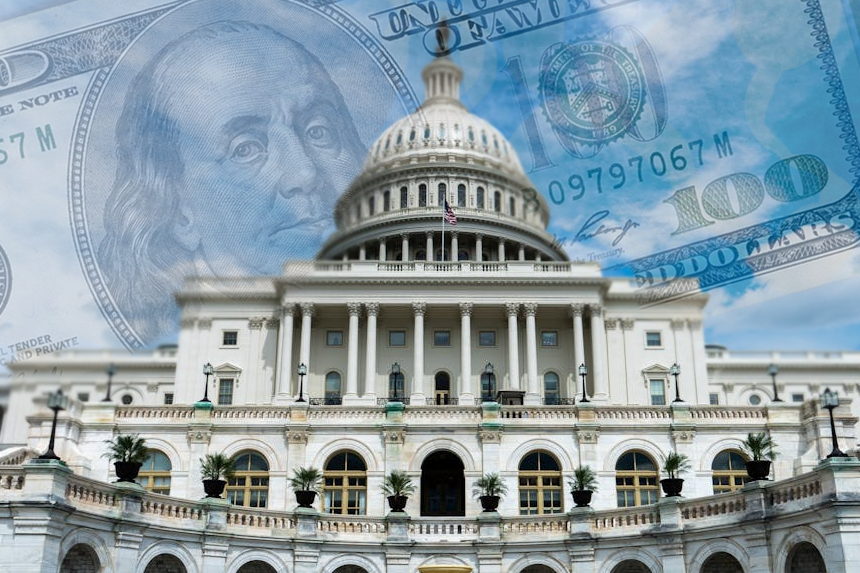After President-elect Donald Trump urged Republican legislators to reject a bipartisan budget proposal on Wednesday, the prospect of a US government shutdown jumped. Tech mogul Elon Musk and others’ strong condemnation preceded Trump’s intervention.
Trump urged Congress to reject the agreement and completely substitute a simplified funding proposal. Speaking on Truth Social, his social media site, he attacked the current plan, stating, “If Democrats threaten to shut down the government unless we give them everything they want, then CALL THEIR Bluff.”
In a joint statement with incoming Vice President JD Vance, the President-elect also insisted that Congress increase the debt ceiling—a decision vital for determining how much the government may borrow—and limit the bill’s focus to temporary expenditures and disaster relief.
What Did Republicans Say Regarding the Fall of the Bill?
Republican House Majority Leader Steve Scalise acknowledged Wednesday night that the funding plan had essentially been postponed following Trump’s criticism. When asked whether the current agreement had been formally thrown out, Scalise answered, “Yes. “
“There is no new agreement right now; still, a lot of negotiations and talks are under progress,” he said.
Congress has to act fast to prevent a government shutdown starting on Saturday since the present continuing resolution is due to expire at the end of the week. Federal services, from the National Parks Service to the Border Patrol, would be closed.
What stood at risk in the bipartisan bill?
Among the 1,500-page funding requests were significant initiatives, including emergency disaster aid, valued at around $110 billion.
- Thirty billion dollars for farmer relief.
- Legislators have received the first wage increase since 2009.
- Federal money for Baltimore’s collapsed bridge rebuilding.
- Change in healthcare.
- Clauses are aimed at misleading hotel and live event venues’ advertising.
Though the agreement had a broad reach, it aroused intense criticism. On Truth Social, he declared, “Any Republican that would be so stupid as to vote for this bill will be unseated with my help.” His comments revealed a growing gulf inside the GOP on the measure.
How did Musk react to the failing bill?
Elon Musk aggressively opposed the measure, even though he would likely be heavily involved in Trump’s future cabinet by advising on government expenditure reduction. Musk posted on Wednesday night, X (previously Twitter), saying, “Your elected representatives have heard you, and now the terrible bill is dead.” The voice of the people has prevailed.
Musk’s well-publicized criticism added to the force behind the Republican rejection of the plan.
How did the White House handle the GOP maneuvering?
Still, the White House harshly criticized Trump and the GOP for their behavior. “Republicans need to stop playing politics with this bipartisan agreement, or they will hurt hardworking Americans and create instability all across the country,” Press Secretary Karine Jean-Pierre cautioned.
She emphasized the possible adverse effects of a government closure: “Triggering a destructive government shutdown would impact families. A deal is indeed a deal. Republicans ought to uphold their word.
Future Prospects for the US Government
As of Thursday morning, it is unknown how Republican House Speaker Mike Johnson intends to proceed. The stalemate negotiations have left federal workers and civilians on alert for the prospect of extensive service interruptions.
There are big stakes. The US has seen 21 government closures or partial shutdowns throughout the last five decades. The longest, lasting 35 days, occurred during Trump’s first term in office.
Americans are left wondering whether Washington’s leaders will find common ground—or let another shutdown develop—as the clock runs down and no apparent solution seems to be in sight.




